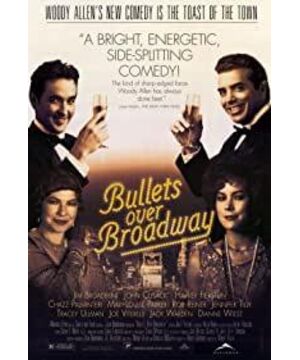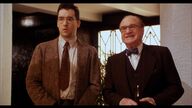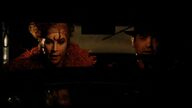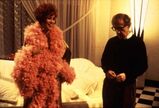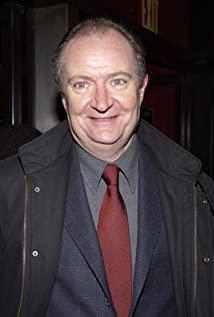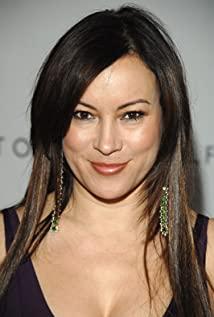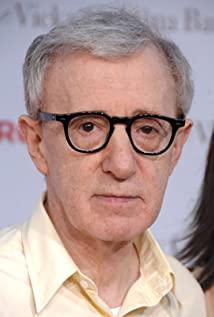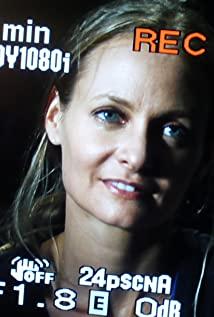Maybe many people don't notice that Shen Teng's "Charlotte Trouble" "draws on" Woody Allen's "Bullets Over Broadway", not just the phrase "don't speak" (don't speak).
Genius and Apostle
"Artists can always create their own ethics." When David's friend says so, I can't help but think of Nietzsche. In the face of the genius Nietzsche, he can ignore the eyes of others and burn his own talents. But in fact, when we say this, we always place a gulf between us and Nietzsche, and with that gulf comes the other - agnostic X. Such a gap also appears between David and the artist, Charlotte and Xu Wei, and even between the apostle and God. The former always act as an intermediary for the latter, paraphrasing their words.
In Bullet, the artist is David's ideal self. He couldn't bear to be so real: he was just a person who lived with a woman and was anonymous. When his plays are funded, he as a playwright is filled with illusions, and he retroactively presupposes that he is a genius. But Cic kept accusing him of mistakes in his writing, and he was annoyed with Cic until he succeeded with Cic. The question at this point was, how would he choose between success and holding on to his failed work? Does he know he is an artist? Maybe the movie has already given the answer, that is, Cic is an artist, and David is not an artist. And Cic's brutality as a gangster is the essence of an artist (being able to create his own "ethics"). So we come to the conclusion that David cannot hold on to his own bad work, he cannot create his own ethics, therefore he is not an artist.
Perhaps here, we have to jump out of the film for a distance, not to ask whether Cicci's ethics as an artist is correct, or whether David is disgusted with Cicci's ethics, so that he can return to his true way of life; nor is there a Counter-proposition, "Even if he insists on his work, he is only a mediocrity". Rather, it was Cic's rudeness that destroyed his imagination of the artist (don't forget that the artist is just an empty signifier , not indicative of the essence). He touched the boundary of the original, and in that vacancy, his artist dream was only a mirage. He's just Cic's intermediary. This intermediary is reproduced in a more obvious way, when he hears Chichi say "don't talk" as he is shot to death, and he realizes that he is even an intermediary for Chichi and Jennifer. The original (play) became disgusting. A similar possible retreat might happen to "Jay Chou" in "Charlotte", just because he found that Charlotte was beyond his own X (an artist used violence, blasted him, who changed the lyrics, and became a "neighbor". ” ), making it impossible for him to be Charlotte, and he eventually gave up music; or made his own.
Two retreats from impossible love
"Charlotte" apparently borrows the structure from "Bullet," in which a man swings between his lover and his wife, ultimately choosing his wife. But the inconsistency between the two must be pointed out. "Charlotte" makes this separation from "Bullet", where I can only be lovable if I am an artist. And "Charlotte" is that I'm only cute if I'm a rich man.
Charlotte didn't wonder if she was an artist. He seemed to know from the beginning that he would be successful, so his pursuit of Qiuya became dirty and a seduction. He turned Qiuya into a property. When he said, "When I can't write songs, will you still love me?" The translation of this line is naturally "When I can't write songs, I lose my wealth. " .
At the beginning of Qiuya's wedding, he had no money or power, and he bravely faced Qiuya. When he returns to the past, he escapes the past, hoping to deceive history, and the gap between before and after behavior reflects the inversion, which is Kant's total evil. Although the movie tries to materialize this change, i.e. in his quest for money, he has no idea that Dongmei sacrificed for him. But this reflection is not sufficient. Isn't Charlotte pursuing it based on the fact that they are no longer possible? His love for her was at best a compensation for sacrifice. So there must be an extra boring part of the plot, and Charlotte goes back to see his former wife. What he enjoys is the impossible gaze of the Other , "she didn't know she was my wife". The real love illusion occurs in this "nostalgic" moment, after he escapes the dream and breaks into reality in order to continue the dream. If not based on a "nostalgic" perspective, what if the dream is already a reality? Perhaps real reflection means completely accepting the impossibility of He Dongmei, seeing that Qiuya has become a victim of the materialized era and her own victim—she no longer loves her talent, but loves money, but also loves money. Work hard to maintain your reputation. Only by identifying with the symptoms and denying the logic of exchange (qian and Dongmei) can we truly let go of money and go through the illusion.
View more about Bullets Over Broadway reviews


